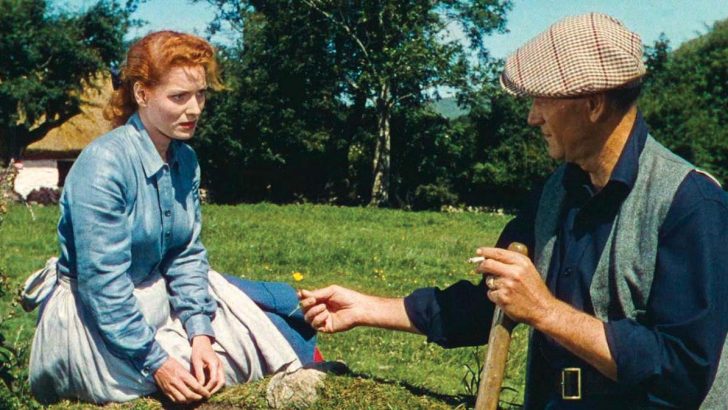Maureen O’Hara: The Biography
by Aubrey Malone (University of Kentucky Press, £15.00pb)
Sidney Lumet: The Actor’s Director
by Aubrey Malone (MacFarlane & Company, £50.95hb/£36.00pb; also on kindle)
Aubrey Malone, the film critic of The Irish Catholic, is an intensive historian of the movie-making business (as it is for most people), with a sharp critical eye also on the smaller world of genuine filmmakers. Both these classes are covered by his latest offerings.
I sometimes wonder if Maureen O’Hara, at the end of a long and varied career, regretted making The Quiet Man (John Ford, released 1952), which seems to have become the most truly popular Irish film ever made. In itself it has given rise to a whole local tourism industry down in the Galway region around Cong.
But, as this book makes clear, there was a great deal more to this fiesty, strong-minded woman and her career. She was a product of the real glory days of Hollywood, but had the luck and the talent to work with some very best directors and actors, and not merely John Ford and John Wayne. Mr Malone does full justice to her, but as the story unfolds one realises there is even more to Maureen O’Hara as a representative Irish woman of her time.
Contrast
Sidney Lumet presents quite a contrast. As this is the first full-scale biography of the director, Mr Malone is able to reveal both the man and his passions as well as the director and his methods. Among his films are some that are everyone’s list of the greatest every made: among his catalogue of 50 there is a wide choice. He was a liberal-minded man with a sense both of purpose and his trade, he could also bring in his movies within budget and on time. One of his earliest jobs was working on the series You Are There, which reconstructed historical events as they might have been reported now for television, which caused great excitement here in Ireland when it was rescreened in the early l960s. His transition from US television to films explains the decline of that medium into the sorry state it is now in: the best like Sidney Lumet went elsewhere.
If the Maureen O’Hara biography will delight fans, the Sidney Lumet book ought to find a place on the shelves of film buffs everywhere.


 Peter Costello
Peter Costello Maureen O’Hara and John Wayne from The Quiet Man
Maureen O’Hara and John Wayne from The Quiet Man